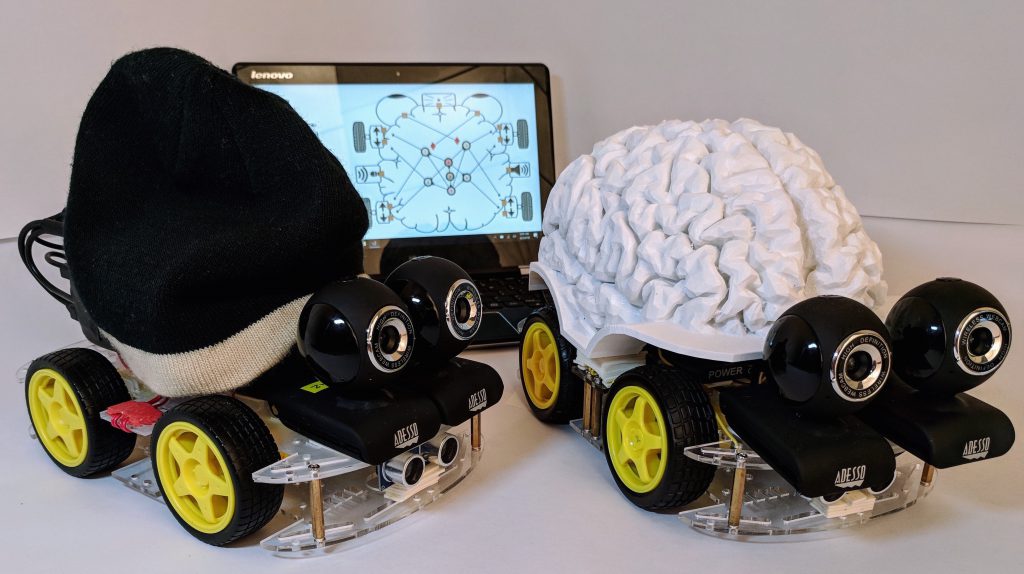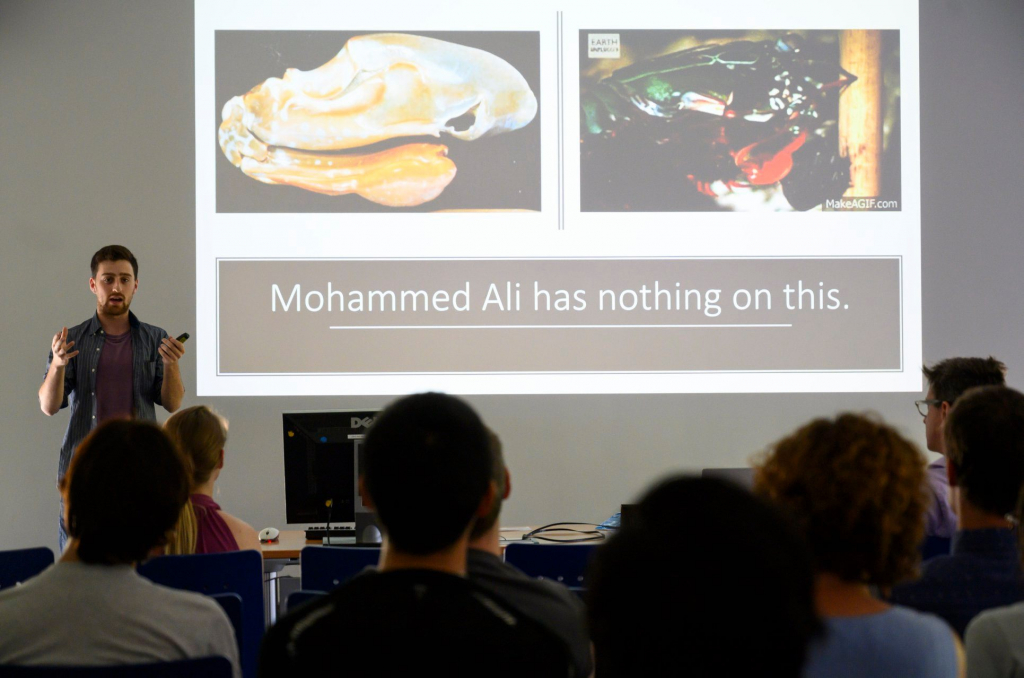-
 EducationIn an article we previously published in June 2022 about our scientific paper that dealt with play behavior in fish, I concluded at the end of the article: “I think it is possible for novices and high school students to publish papers (and it is the dream and goal of our team)… That is why we […]
EducationIn an article we previously published in June 2022 about our scientific paper that dealt with play behavior in fish, I concluded at the end of the article: “I think it is possible for novices and high school students to publish papers (and it is the dream and goal of our team)… That is why we […] -
 EducationStart the presses! Backyard Brains has a new publication! Our Neurorobot paper is titled “Neurorobotics Workshop for High School Students Promotes Competence and Confidence in Computational Neuroscience.” You can read the article in its entirety on the Frontiers in Neurorobotics website–because we believe neuroscience knowledge is for everyone, and no one should have to pay […]
EducationStart the presses! Backyard Brains has a new publication! Our Neurorobot paper is titled “Neurorobotics Workshop for High School Students Promotes Competence and Confidence in Computational Neuroscience.” You can read the article in its entirety on the Frontiers in Neurorobotics website–because we believe neuroscience knowledge is for everyone, and no one should have to pay […] -
 EducationHot off the presses! Read all about it! Mantis Shrimp Wrangler Extraordinaire Dan has been published! Backyard Brains Senior Fellow Dan Pollack has had his research published in JUNE, the Journal for Undergraduate Neuroscience Education: “An Electrophysiological Investigation of Power-Amplification in the Ballistic Mantis Shrimp Punch.” The paper offers a rundown of Dan’s research, culminating in […]
EducationHot off the presses! Read all about it! Mantis Shrimp Wrangler Extraordinaire Dan has been published! Backyard Brains Senior Fellow Dan Pollack has had his research published in JUNE, the Journal for Undergraduate Neuroscience Education: “An Electrophysiological Investigation of Power-Amplification in the Ballistic Mantis Shrimp Punch.” The paper offers a rundown of Dan’s research, culminating in […] -
EducationScientific publications are a bit more formal than our preferred mode of “sharing the good word” of DIY Neuroscience–our TED videos are a great example of our normal route. But, scientific publications are a currency of authority, and they do offer the opportunity to lay out, very precisely, why we think that students around the […]